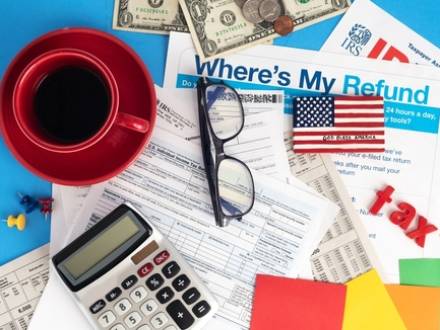"Parking" Federal and State Refunds to Avoid Bankruptcy Loss
 If you are considering bankruptcy and expecting a sizeable tax refund, you may wonder how you can protect that money. In some cases, parking the money can be a strategy to help you keep your refunds. Parking means using timing and exemptions to keep as much of your refund as the law allows, while avoiding fraud or hiding assets.
If you are considering bankruptcy and expecting a sizeable tax refund, you may wonder how you can protect that money. In some cases, parking the money can be a strategy to help you keep your refunds. Parking means using timing and exemptions to keep as much of your refund as the law allows, while avoiding fraud or hiding assets.
Under Maryland bankruptcy laws, state or federal tax refunds tied to income earned before you file are usually considered part of the bankruptcy estate. This makes them vulnerable unless they are spent on necessities before filing or protected by exemptions.
Both federal and state governments can also sometimes set off tax refunds against older tax debts, so this must also be planned for. Since bankruptcy laws can be complex, it is important to consult with an experienced Charles County, MD bankruptcy attorney.
When is Your Tax Refund at Risk?
Whether your state or federal tax refund is at risk during bankruptcy will depend on several factors, including whether you are filing for Chapter 7 or Chapter 13, and the timing of your filing relative to when you receive or expect your refund. In Chapter 7 bankruptcy, any income earned before filing (including a tax refund) is considered an asset of the bankruptcy estate, thus available to creditors unless specifically exempted.
Under Chapter 13 bankruptcy, tax refunds received during the repayment plan are considered part of the estate and may be used to pay creditors. If you anticipate a tax refund but have not received it before you file for bankruptcy, it may still be considered an asset.
What About Refunds and Old Tax Debts?
Both the IRS and the state of Maryland are likely to use tax refunds as "setoffs" if you have unpaid tax liabilities. During the bankruptcy stay, the IRS may offset a pre-petition income tax refund against a pre-petition income tax liability, so you should plan for this. Regarding state tax refunds, the Maryland Tax Refund Intercept Program allows the Comptroller to apply your state tax refund to any past due tax debts.
How Can You Protect or "Park" Your Tax Refund?
Suppose you receive your refund before filing for bankruptcy. In that case, it can be used to cover necessary living expenses (such as rent, mortgage payments, utilities, groceries, medical bills, or necessary repairs) and is unlikely to be considered part of the bankruptcy estate. You must not, however, use the refund to pay unsecured creditors, as this can cause other issues.
You may be able to use your exemptions to protect certain assets. Under Maryland bankruptcy law, the wildcard exemption could potentially shield a tax refund. The Maryland wildcard exemption (Section 11-504) covers cash or property of any kind up to $6,000. The personal property exemption is $5,000, which could also be used to protect your refund.
Under Chapter 13 bankruptcy, the pre-petition portion belongs to the estate, usually prorated by days of the tax year. Your tax refund could be included in your repayment plan and allocated to creditors. You may, however, be able to request that the refund be kept for necessary expenses.
What You Should Not Do With Tax Refunds
Never attempt to "stash" tax refunds with a friend or family member, or move the refund to someone else’s account. This is considered concealment of funds, or a potentially fraudulent transfer. Do not repay debts you owe relatives with your tax refund before filing, as this could also cause trouble.
Contact a Prince George’s County, MD Consumer Bankruptcy Attorney
When you choose a Bowie, MD bankruptcy lawyer from Bloc One Services, LLC, your bankruptcy case can be comprehensively reviewed before you file. Attorney Blocton provides the local community with quality legal services at a fair and reasonable price. Call 240-200-0076 for a free initial 30-minute consultation. "Rebuild Your Future with Hope."




